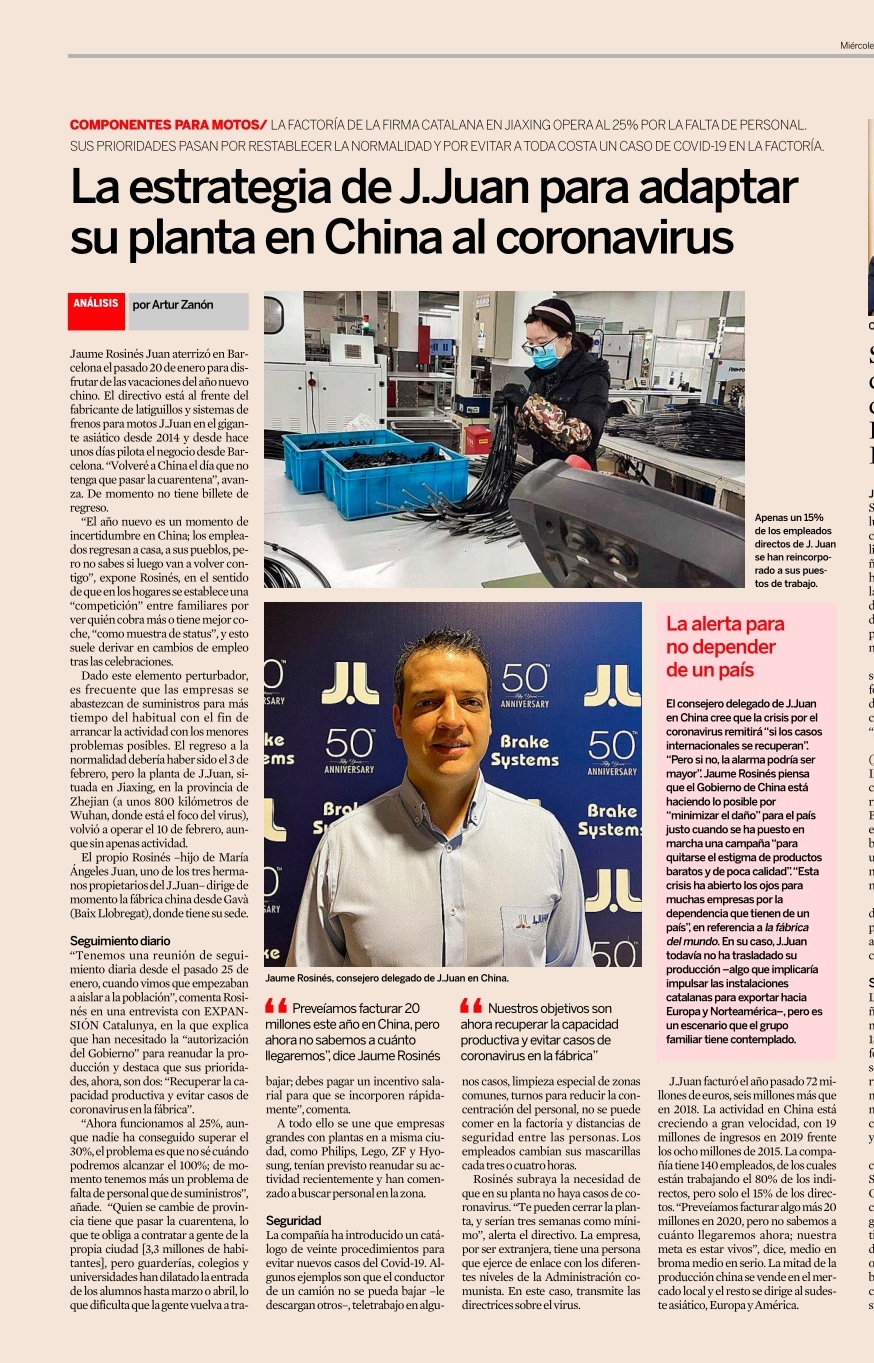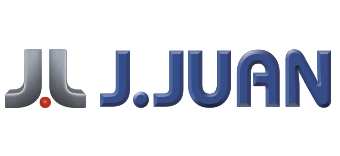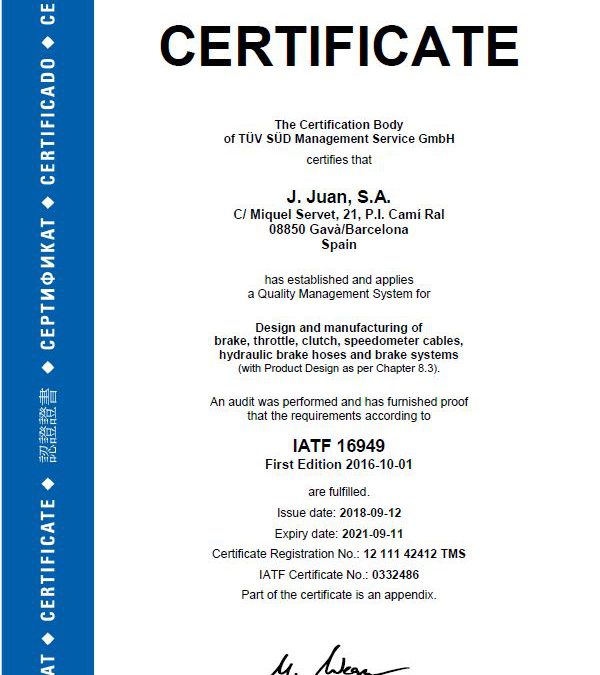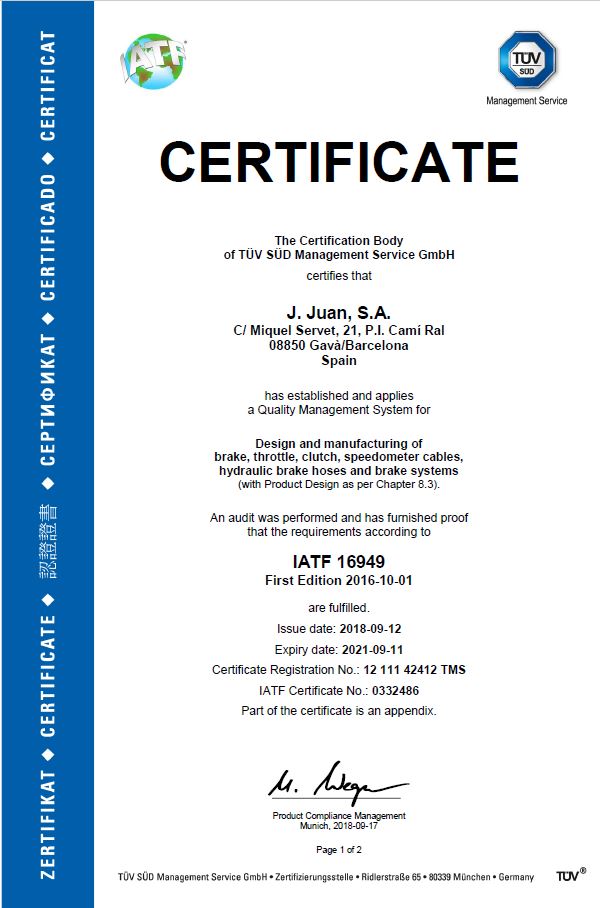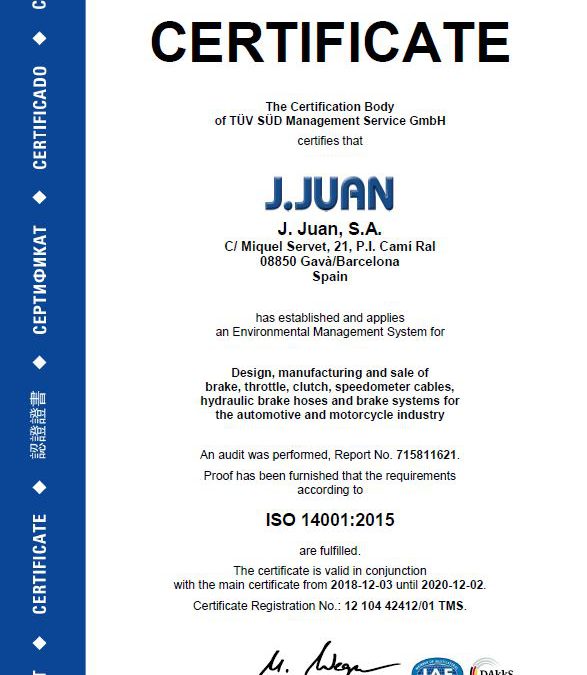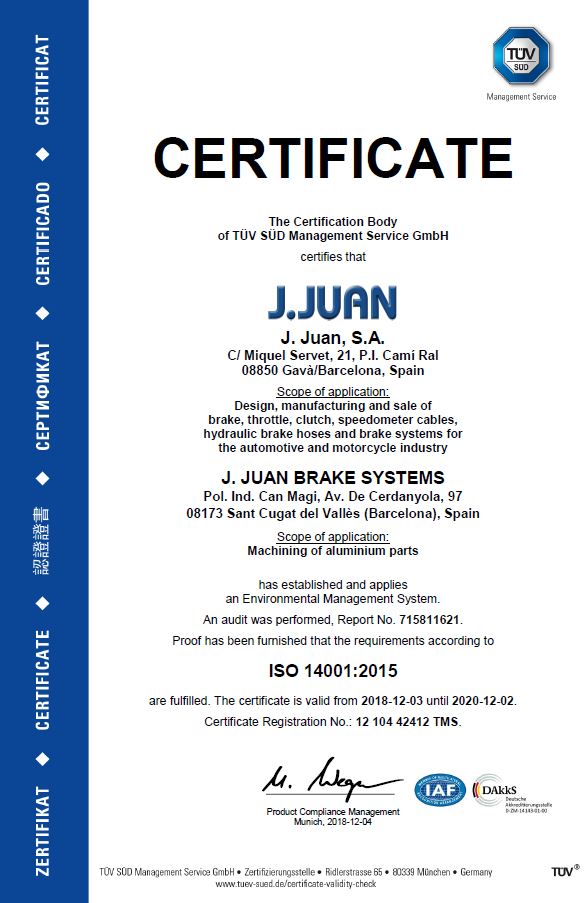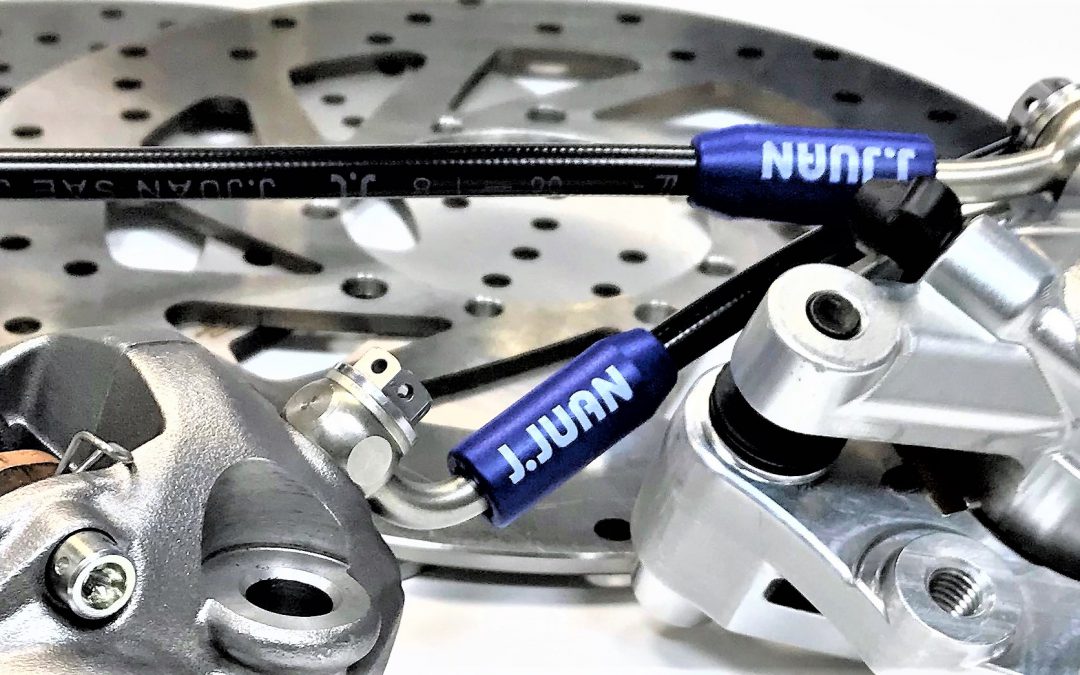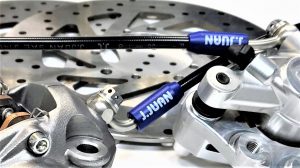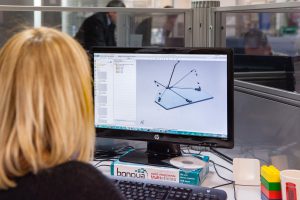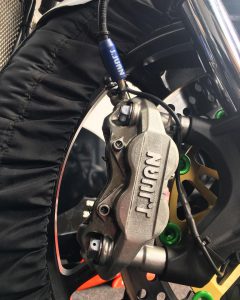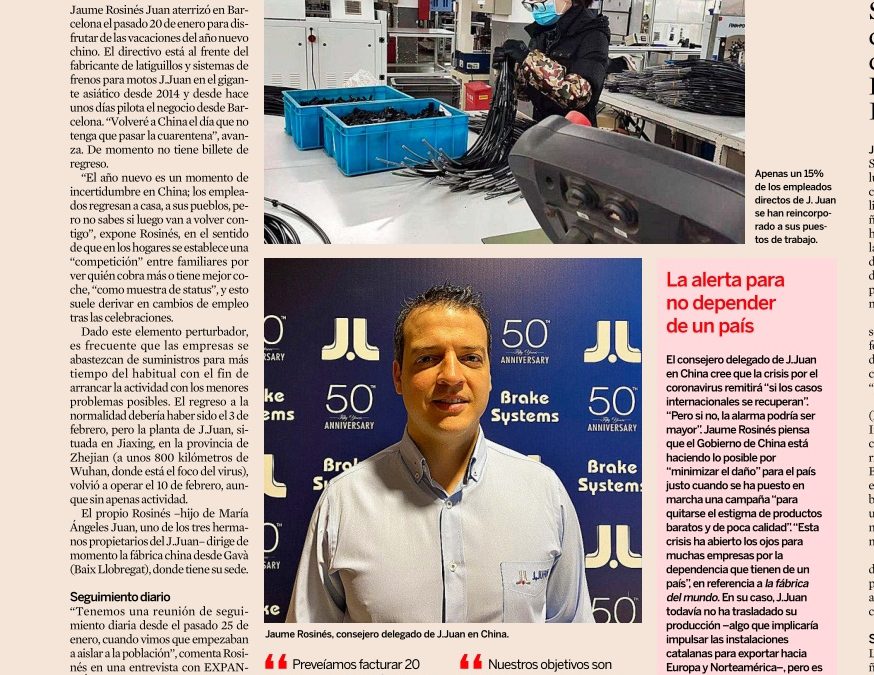
J.Juan’s strategy to adapt its China plant to the coronavirus
THE CATALONIAN COMPANY’S FACTORY IN JIAXING IS OPERATING AT 25% CAPACITY DUE TO LACK OF PERSONNEL. ITS TOP PRIORITIES ARE TO RE-ESTAPBLISH NORMAL PRODUCTIION AND TO PREVENT ANY CASES OF COVID-19 IN THE FACTORY AT ANY COST
Jaume Rosinés Juan landed in Barcelona on the 20th of January to spend the Chinese New Year holiday. He has been in charge of the motorcycle brake systems and hoses manufacturing plant in China since 2014, and for the last few days has been running the business from Barcelona. “I’ll return to China the day I don’t have to go through quarantine”, he said. For the moment he does not have a return ticket.
New Year is a time of uncertainty in China: staff go to their homes, their home towns, but you don’t know if they’ll be back”, Rosinés explains, because in Chinese homes there is a sort of “competition” among family members to see who makes the most money or has the best car, “as a status symbol”, and this often results in changes in employment after the New Year celebrations.
Given this disruptive factor, companies frequently provide themselves with supplies for a longer period of time than usual in order to restart production with the fewest possible problems. Things should have returned to normal on the 3rd of February, but J.Juan’s plant, located in Jiaxing, in the Zhejian province (about 800 kilometres from Wuhan, where the focal point of the virus is), went back into operation on the 10th of February, although with hardly any production.
Mr. Rosinés himself – son of María Ángeles Juan, one o the three siblings who own J.Juan, is for the moment managing the China factory from Gavà (Baix Llobregat), the company’s headquarters.
Daily Monitoring
“We’ve been holding daily monitoring meetings since the 25th of January, when we saw that they were starting to isolate the residents, says Rosinés in an interview with EXPANSIÓN Catalunya, in which he explains that they have had to obtain “Government authorization” to resume production and he emphasizes that their priorities, for now, are two: “Recover production capacity and prevent cases of the coronavirus in the factory”.
“Now we are working at 25%, although nobody has managed to go over 30%, the problem is that I don’t know when we can get back to 100%; for the moment our problem is more a lack of personnel than o supplies”, he adds. “Whoever moves from one province to another has to go through quarantine, which forces you to hire people from the city itself (3.3 million inhabitants), but kindergartens, schools and universities have postponed the entrance of students until March or April, which makes it difficult for people to return to work; you have to pay an incentive so that they resume work quickly”, he comments.
Added to all this are the large companies with plants in the city itself, like Philips, Lego, ZF and Hyosung, who had recently planned to resume their activity and have started looking for staff in the area.
Safety
The company has introduced a catalogue of twenty procedures to prevent cases of Covid-19. Some examples are that lorry drivers may not get out of the vehicle – others unload it-, teleworking in some cases, special cleaning of communal areas, shifts to reduce the concentration of staff, eating is not permitted in the factory and safety distances among people. Staff also change their masks every three or four hours.
Rosinés underlines the need for there to be no cases of coronavirus. “They can close the factory, and that would be for three weeks, minimum”, he warns. The company, because it is foreign, has someone who acts as a liaison with the different levels of the communist Administration. In this case, he/she communicates the guidelines regarding the virus.
Last year, J.Juan had a turnover of 72 million euros, six million more than in 2018. Production in China is growing at high speed, with 19 million in income in 2019, compared to eight million in 2015. The company employs 140 people, of whom 80% of indirect employees, but only 15% of direct employees are working. “We were expecting to turnover more than 20 million in 2020, but now we don’t know how much the turnover will be; our goal is to stay alive”, he said, half-jokingly. Half of the China production is sold in the local market and the rest is for South-east Asia, Europe and America.
The need not to depend on one country
J.Juan’s CEO in China believes that coronavirus crisis will subside “if the international cases recover”.
“But if not, then the concern could be greater”. Jaume Rosinés thinks that he Chinese Government is doing everything possible to “minimize the damage” to the country just when it has launched a campaign to remove the stigma cheap, low quality products”. “This crisis has opened many companies’ eyes to their dependence on a single country”, referring to the world’s factory. In their case, J.Juan has not yet moved their production – something that would imply pushinig the Catalonian facilities to export to Europ and North America -, but that is a scenario for which the family-run business has plans.
